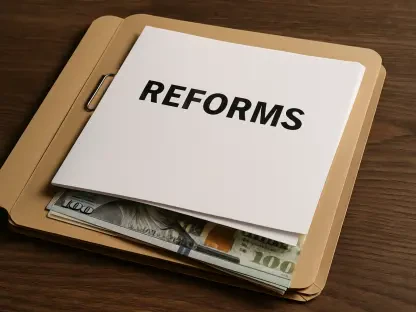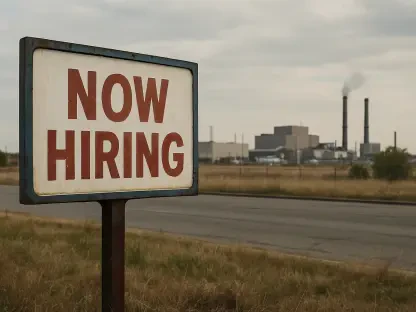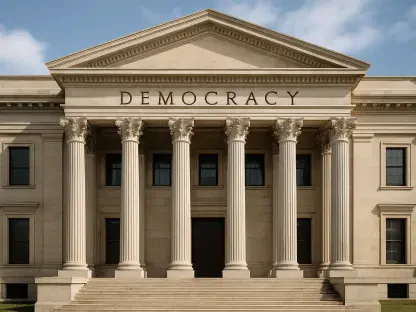California’s small businesses, which employ over half of the state’s workforce and significantly contribute to economic growth, are facing potential setbacks due to recent federal policies. President Donald Trump’s administration has introduced executive orders that could jeopardize the funding and support these businesses rely on. This article explores the implications of these policies on small businesses in California, highlighting the challenges and concerns of business owners and experts alike.
The Role of Small Businesses in California’s Economy
Economic Backbone
Small businesses are the bedrock of California’s economic landscape, playing a fundamental role in job creation and sustaining the state’s financial stability. As vital contributors to employment, these enterprises collectively provide jobs for more than half of California’s workforce. Their success is directly tied to the broader health of the local and state economies. Without the robust presence of small businesses, the state’s economic resilience would be weakened, potentially leading to higher unemployment rates and diminished economic growth. The essential nature of these businesses underscores their critical place within the economic fabric of California.
Contribution to Job Creation
In addition to their economic significance, small businesses drive innovation by offering unique products and services that contribute to the diverse and dynamic economic environment of California. They are often the birthplaces of innovative ideas and technologies that eventually scale up to larger markets. This spirit of entrepreneurship fosters community development, as small business owners invest in their local neighborhoods, creating vibrant commercial districts and offering employment to local residents. Therefore, the contribution of small businesses is multifaceted: they not only provide essential goods and services but also promote economic diversity and job creation, making them indispensable to California’s prosperity.
Impact of Federal Funding Freeze
Immediate Disruptions
President Trump’s federal funding freeze, imposed on January 27, has caused immediate disruptions. The sudden halt has impacted numerous federal programs designed to support small businesses, creating uncertainty and financial strain for many. This freeze was enacted with the intent to reassess and potentially reallocate funding, but the immediate consequence has been turmoil for countless business owners who rely on these programs for stability and growth. The lack of accessible funds has stalled many existing projects and initiatives, compounding the financial difficulties small businesses already face in a competitive economic landscape.
Case Study: Liz Perez
Liz Perez, a small business owner in San Diego County, exemplifies the broader impact of this funding freeze on small business operations and community infrastructure. Her projects have come to a standstill, resulting in financial difficulties and heightened anxiety over the future of her business. Perez’s experience underscores the pervasive challenges that many small business owners face due to interrupted revenue streams and the uncertainty of federal support. This case highlights the tangible effects of policy decisions on the ground level, demonstrating the critical need for consistent and reliable funding mechanisms to maintain small business vitality and infrastructure development.
Legal Challenges and Temporary Relief
Lawsuits Against the Freeze
Several states, including California, have responded to the federal funding freeze by filing lawsuits, challenging the legality and ramifications of such abrupt policy changes. These legal actions aim to overturn the freeze and restore the flow of funds necessary for small business operations. In response to these lawsuits, a federal judge issued a temporary restraining order, providing short-term relief and allowing some level of federal support to resume. This judicial intervention has offered a brief reprieve for affected businesses, preventing immediate financial collapse and helping to mitigate the initial shock of the funding halt.
Ongoing Uncertainty
Despite the temporary relief granted by the restraining order, the ongoing legal battles have contributed to prolonged uncertainty for small business owners. The future of federal funding remains unclear, with businesses struggling to plan and operate under the shadow of potential policy reversals. This precarious position leaves small business owners in a state of limbo, unable to make confident decisions about expansion, hiring, or investment. The unpredictable policy environment not only affects immediate operations but also has long-term implications for the strategic planning and stability of small enterprises across California.
Broader Economic Implications
Long-Term Economic Impact
Experts like Simon Brown from the Small Business Majority have expressed deep concerns about the long-term economic impact of the funding freeze. Prolonged restrictions on federal funds could stifle job creation and reduce investment in small businesses, leading to a slowdown in economic growth. The potential decline in business activity might ripple through the larger economy, affecting industries and communities dependent on the vibrancy of small businesses. This scenario paints a dire picture of fewer opportunities, diminished innovation, and overall economic stagnation if the funding freeze remains in place or if similar policies are pursued in the future.
Programs at Risk
Federal programs specifically designed to support small businesses are particularly at risk due to the funding freeze. Essential services like disaster loans, microloans, and the State Small Business Credit Initiative are facing potential discontinuation or significant funding cuts. These programs play an invaluable role in ensuring that small enterprises have the financial resources needed to recover from unexpected setbacks and to invest in their growth. Additionally, there are concerns that contracts for community development financial institutions may be canceled, further limiting access to necessary financial services for small businesses. This potential contraction of federal support systems could severely impact the ability of small businesses to thrive and contribute to the economy.
Equity and Inclusivity Concerns
Rollback of DEI Initiatives
The Trump administration’s focus on eliminating diversity, equity, and inclusion (DEI) initiatives introduces significant challenges to achieving a fair and inclusive business environment. These rollbacks threaten to erode the progress made in supporting minority-owned businesses and fostering an equitable economic landscape. By stripping away DEI programs, the administration risks increasing barriers to entry and success for historically marginalized groups. This regression in policy could negate years of efforts to level the playing field for minority entrepreneurs and reduce the socio-economic disparities that DEI initiatives aim to address.
Socio-Economic Inequalities
The potential regression in DEI efforts raises substantial fears about exacerbating socio-economic inequalities. Minority and disadvantaged groups who have benefited from previous DEI programs may now face diminished support, leading to fewer opportunities and greater financial instability. The rollback of these initiatives could widen the gap between advantaged and disadvantaged communities, undermining social cohesion and economic inclusivity. The removal of support structures designed to uplift underrepresented businesses poses a significant risk to the broader goals of equality and fairness, potentially entrenching existing disparities and hindering future progress.
Contrasting Opinions and Political Ramifications
Expert Opinions
Opinions among experts and stakeholders regarding the significance and impact of cutting federal aid to small businesses are varied. While many express concern about the harmful potential of such measures, others argue that the intrinsic political and economic importance of small businesses might safeguard them from the most severe funding cuts. Proponents of this view suggest that the broad-based popularity and fundamental necessity of small businesses ensure that they remain a high priority for any administration, making them less vulnerable to drastic funding reductions. This debate highlights the complex interplay between economic policy and political strategy in shaping the landscape for small businesses.
Political Pushback
California’s small businesses, which make up a significant portion of the state’s economy and employ over half of its workforce, are at risk because of recent federal policies. The Trump administration has implemented executive orders that threaten the crucial funding and support these businesses depend on. This situation raises serious concerns among business owners and experts about the future stability of small enterprises in the state.
These small businesses are vital to California’s economy, providing employment and fostering economic growth. However, the new policies could undermine their operations, creating uncertainty and potential financial strain. Business owners worry about sustainability and the ability to thrive under these changing conditions.
This article dives into the potential effects of these federal policies on California’s small business community. The focus is on the challenges faced by business owners and their efforts to adapt to a shifting economic landscape. The discussion includes analysis from experts who understand the critical role these businesses play in the broader economy.
In summary, federal policy changes present significant hurdles for California’s small businesses. It’s crucial to consider the broader implications to ensure these businesses can continue contributing to the state’s economic health and prosperity.









